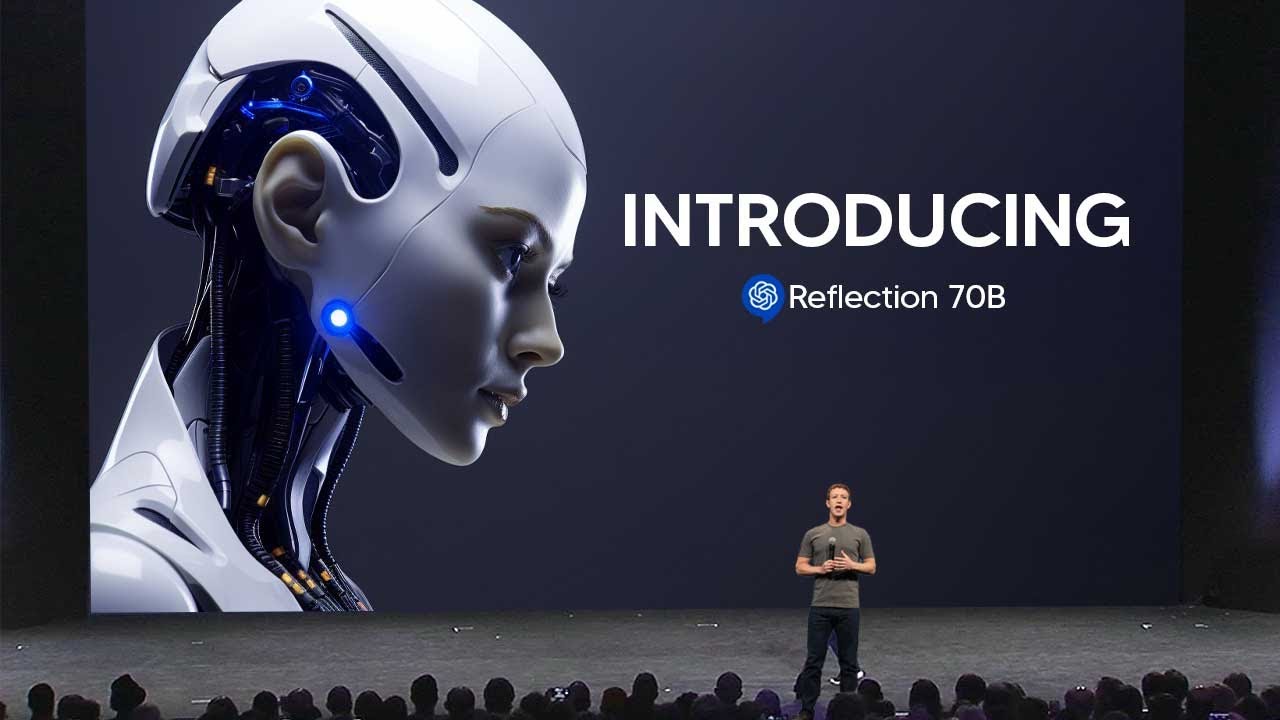The video discusses the launch of the Reflection 70B model, an open-source AI with 70 billion parameters that competes with leading closed-source models like GPT-4 and Claude 3.5 Sonic, showcasing impressive performance in benchmarks and a unique “Chain of Thought” reasoning process. Despite some weaknesses in complex reasoning tasks, the model’s advancements signal a significant shift in the open-source AI landscape, challenging the belief that open-source cannot match closed-source capabilities.
In the video, the presenter discusses a groundbreaking announcement in the realm of open-source AI: the introduction of the Reflection 70B model, which boasts 70 billion parameters. This model is being hailed as the top open-source AI model, challenging the dominance of closed-source models like GPT-4, Google Gemini, and Claude 3.5 Sonic. The presenter emphasizes that, contrary to common belief, open-source models have made significant strides and can now compete with the best in the industry, thanks to the fine-tuning of existing models like LLaMA.
The video highlights the impressive performance of Reflection 70B on various benchmarks, where it only falls short in two areas: human evaluation and GP Q8. Notably, its performance is close to that of Claude 3.5 Sonic, which is considered one of the strongest models available. The presenter points out that Reflection 70B excels in several benchmarks, including MMLU and GSM8K, showcasing its capabilities in mathematical reasoning and general understanding, which are critical for AI applications.
A key feature of the Reflection 70B model is its use of a “Chain of Thought” reasoning process, which allows it to break down problems step-by-step. The presenter illustrates this with an example where the model compares two decimal numbers, demonstrating its ability to plan, execute, and reflect on its reasoning. This reflective capability is crucial for improving decision-making and accuracy in responses, setting Reflection 70B apart from many other models that struggle with similar reasoning tasks.
The video also includes real-world testing of Reflection 70B against other models, revealing its strengths and weaknesses in basic reasoning scenarios. While the model performs well in many instances, it does make mistakes, highlighting the ongoing challenges in AI reasoning. Comparisons with other models like Claude 3 Opus and Gemini show that while Reflection 70B is competitive, there are still areas where it can improve, particularly in complex reasoning tasks.
In conclusion, the presenter expresses excitement about the advancements made by Reflection 70B and the implications for the future of open-source AI. The model’s performance challenges the notion that open-source cannot compete with closed-source counterparts, suggesting a shift in the landscape of AI development. The video ends with an invitation for viewers to share their thoughts on the model and the evolving state of open-source AI, hinting at the potential for even more powerful models in the future.
